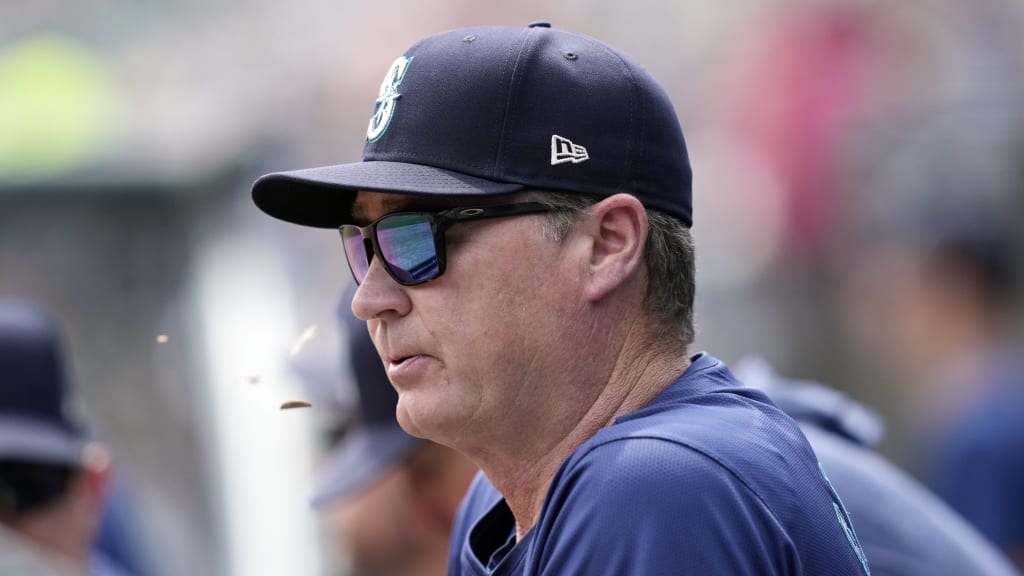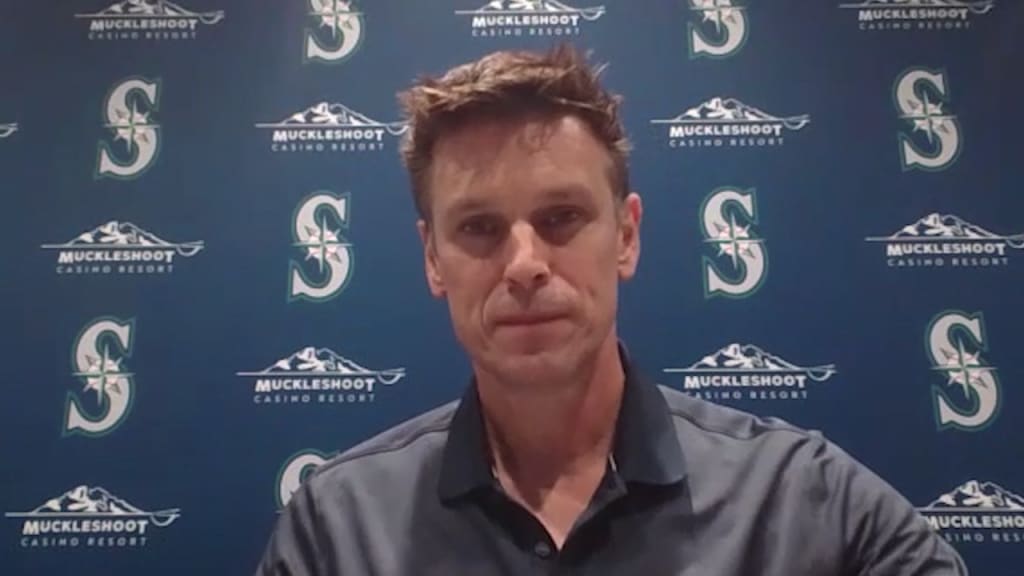Servais reflects on nine years at the helm in Seattle
This browser does not support the video element.
SEATTLE -- Roughly 24 hours after word broke that he’d been let go as Mariners manager, Scott Servais offered reflection on what went right and wrong, and where he goes from here, over a 30-minute phone call on Friday morning with three of Seattle’s beat reporters.
The decision came on the heels of a 1-8 road trip that sunk Seattle to .500 (64-64). It had been finalized in the days leading up to Thursday’s official announcement, but the framework had been brewing for longer, president of baseball operations Jerry Dipoto said.
“I knew probably at the end of the year, if we didn't get into the playoffs, whatever, that there would be kind of a reflection time on where the organization was at and where I fit moving forward," Servais said. "I just, my expectation was that I'd get a chance to finish out the year. Unfortunately, it just didn't happen.”
Servais also confirmed that he first heard of his dismissal via a news alert, before his scheduled in-person meeting with Dipoto. But Servais preferred not to go into detailed specifics, like Dipoto did when speaking to the media Thursday.
“When you're part of an organization for nine years, it feels like family,” Servais said. “And it was alarming that I found out that way. But it happened. I can't say it didn't happen. It absolutely happened that way.”
This browser does not support the video element.
Among the reasons Dipoto cited for dismissing Servais was that the clubhouse needed a “new voice,” which will come via new manager Dan Wilson. The Mariners Hall of Famer -- along with fellow franchise icon Edgar Martinez, who was brought on as Wilson’s hitting coach -- will be tasked with overseeing an offense that has been among MLB’s least productive, which has run counter to their top-end pitching rotation.
“Obviously, it didn't end the way here I hoped it would,” Servais said. “I thought, for whatever reason, we just weren't able to get it going offensively on a consistent basis. And saying that line drives me crazy, because it seems like I've said it so much; but it's the truth. We just couldn't get the offense going here.”
Those struggles have been the most pronounced in the club’s overall struggles, which ultimately played a significant factor in both Servais and hitting coach Jarret DeHart losing their jobs.
For myriad reasons -- including their pitcher-friendly home environment -- the Mariners under Dipoto and Servais (since the 2016 season) have struggled to both transition proven MLB hitters to T-Mobile Park and develop some of their own homegrown offensive talent. They’ve also experienced budgetary constraints, specifically last offseason, that impacted how Dipoto and general manager Justin Hollander constructed the roster, most specifically related to offense.
This browser does not support the video element.
“The organization goes through different phases,” Servais said. “Higher payrolls, break it down [rebuild], younger guys, build it back up. I think for the most part, there were times I felt very supported. And there were times I was concerned about where we were headed.
"But a lot of things change over nine years. ... The team changes, the vibe of the team, the age of the team, the payroll of the team. So you have to be adaptable.”
Servais, whose nine-year tenure with the Mariners trailed only the Rays’ Kevin Cash for the longest active in MLB, has worked in every facet of the game over his 35 years in professional baseball -- as a player, scout, farm director, assistant general manager and manager.
He said does intend to remain in the game in some capacity, and he desires another shot at managing in the Majors.
“You hope that experience helps you out,” Servais said. “I know it helped me, and I feel I was a much better manager the more I did it, the more years I did it. I say all that, and obviously it didn't end the way here I hoped it would.”
He also said that the manager role was his most fulfilling among the many hats he’s worn.
“The things that I love about it, it's about players and relationships and helping them develop and see them grow in their career,” Servais said. “I think back on the relationships I've built here with guys -- the J.P. Crawfords, and see how they've grown, and Cal [Raleigh] and Logan [Gilbert] and that group of young players. And then former players, how you've helped them at certain points.
“That's really the most gratifying thing for me, is helping players. And then hoping you can bring a winning situation to maybe a city or fan base that hadn't had it in a while.”

